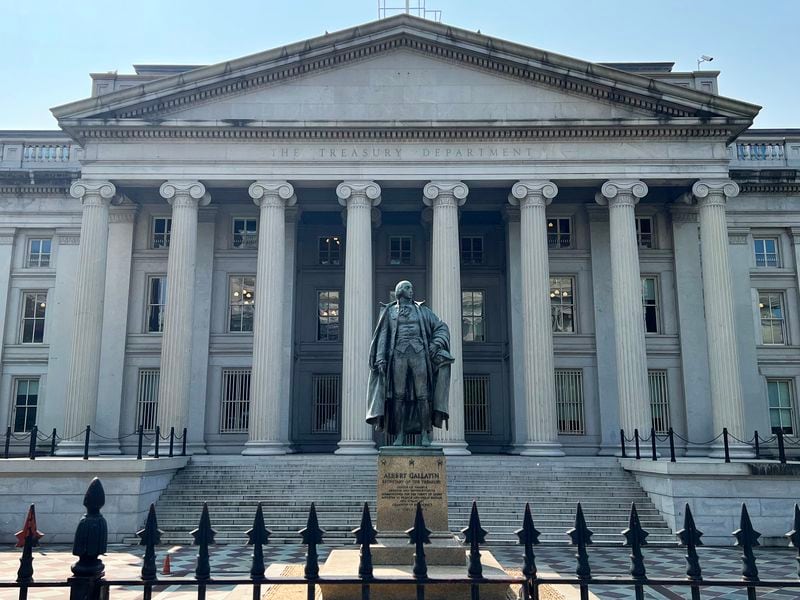Crypto
-
A new U.S. strategy to promote financial inclusion isn’t leaning on crypto as an option, but it did briefly mention the technology as a risk.
-
The Biden administration push comes as Vice President Kamala Harris has been warming up to crypto during her presidential election bid.
The U.S. Treasury Department has a new strategy for financial inclusion to help people get access to the financial system, but the 35-page report references cryptocurrency only once – to tout Treasury’s work on flagging the industry’s hazards.

01:25
Short-Term Holders Panic Amid Bitcoin’s Drop, $295M Long Liquidations

02:20
Kamala Harris’ Winning Odds Rise on Polymarket; SEC Goes After Immutable

18:27
Robinhood’s Next Steps After Q3 Earnings

01:49
Mega ETF Inflows and Bitcoin Wallet Activity Signal Further Bullishness
While Vice President Kamala Harris has said on the campaign trail she’ll encourage crypto as a part of her economic agenda, the administration she’s currently working for is keeping digital assets at arm’s length in what may be the Treasury’s final mention of cryptocurrency before next week’s election.
The Biden administration’s Treasury Department noted in the Tuesday report that it “cultivates financial inclusion by developing and promoting research,” and — to that end — it had issued a report in 2022 on the “risks related to digital assets.”
“Access to safe, affordable financial products and unbiased information can help all Americans pursue financial security,” Treasury Secretary Janet Yellen is set to say at a banking event in New York on Tuesday, according to her prepared remarks in which she’ll call for the bankers’ “active partnership” in the new strategy.
From its start, the crypto sector has made a case for itself as a low-barrier entree into finance. That’s been among the core selling points, for instance, from industry lobbyists as they explain digital assets to lawmakers and regulators. But while international remittances have been an obvious little-guy use case for crypto, Treasury doesn’t seem to have been moved by the industry’s inclusion arguments.
Liberal-leaning groups such as the Center for American Progress have argued that the claim from crypto advocates about its benefits for financial inclusion “does not hold up to scrutiny,” and the Brookings Institution also sought to debunk that narrative.
It’s unclear whether the vice president’s office would have had any say in the Treasury’s latest strategy, though it would seem to contrast with the crypto openness her campaign has been signaling. While Harris’ election opponent, former President Donald Trump, has made his recent crypto enthusiasm a prominent part of his 2024 campaign, his own administration’s Securities and Exchange Commission was the first to bring a major case that attacked the legal foundation of Ripple.
Edited by Stephen Alpher.
Disclosure
Please note that our
and
do not sell my personal information
have been updated
.
CoinDesk is an
media outlet that covers the cryptocurrency industry. Its journalists abide by a strict set of
CoinDesk has adopted a set of principles aimed at ensuring the integrity, editorial independence and freedom from bias of its publications. CoinDesk is part of the Bullish group, which owns and invests in digital asset businesses and digital assets. CoinDesk employees, including journalists, may receive Bullish group equity-based compensation. Bullish was incubated by technology investor Block.one.


:format(jpg)/www.coindesk.com/resizer/x37dWM_1ORxU2nCUG8EyVsmvF4Y=/arc-photo-coindesk/arc2-prod/public/3CZRUU6QWVDQ5PSXCNWHUB6CY4.png)